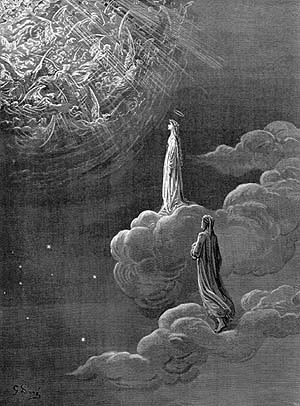But both days end, and Easter Tide rolls on and will slowly melt away into Ordinary time with the coming of Pentecost. These may be a lot of strange words that mean nothing to the reader; regardless, we all know the dragging grind of life and the interplay between life and death. These are the absolutes of human experience. To be alive is to expect death, but death cannot exist without life. Somewhere in the middle of these forces resides the peril of human thought and the crucible of faith. It generates the questions that drive humans mad, or gives them life. Why believe, believe what, or simply, why?
We never stop asking these questions. Whether we ask them of God or the stars or just the silence of our souls we all ask them. I am soon to be an Anglican priest, which in part means I have to take reality very seriously. This is called being "sacramental," which is just a big word meaning the very real stuff of this world communicates the most fundamental truths of the universe (whether you call that spiritual, divine, holy, or Godly). In other words, all this spiritual talk doesn't "float between our ears."
 My family has experienced waves of death in the past three years. Grandparents, parents, siblings, and even children have been lost.
My family has experienced waves of death in the past three years. Grandparents, parents, siblings, and even children have been lost.And we miss them...
That loss, for example, communicates the despair of the human condition. Death is the great and looming threat of loss that stains every single, beautiful reality of this world. It is not "simply" anything, as in being 'natural,' or 'routine,' or 'normal.' Death is the abyss, the final threat. And there is no beauty in it.
If death is a sign for the swallowing up of all beauty, then new life is the promise that all will be made well. This Easter Sunday I held my month-old-daughter in my arms, and she was baptized today, a week later. Her life is a sign, a type of witness of change, of making new. Maybe redemption. By this I mean that if God works this way, then her little life may be a demonstration that some things, at least, will be healed. But this is only a sign.
Because, of course, I will lose her, too, and she will lose me. To be Christian is not to ignore death, or hold resurrection as a type of comfort blanket when death reaches out to us. Instead, it is to walk in the valley of the shadow of death. This is the Christian story itself, that the Author of life took on much shadow and the weight of human flesh so that even the deceased could taste resurrection. It's a promise, to be taken on faith and in the midst of our sufferings. It is certainly not an escape. It is only more horrible because of how much we value life. Life is everything, and if a God can't save that, He's not worth having.
 I certainly don't have neat answers to these questions or these problems, so I end this with a blessing for all of you this Eastertide: May you have peace in the midst of life, but especially in death. May you find life in shadow. May you receive love, even the love of God. May you find forgiveness, even if you must forgive yourself. May you find deliverance, even if you are lost.
I certainly don't have neat answers to these questions or these problems, so I end this with a blessing for all of you this Eastertide: May you have peace in the midst of life, but especially in death. May you find life in shadow. May you receive love, even the love of God. May you find forgiveness, even if you must forgive yourself. May you find deliverance, even if you are lost.May the God of hope guard your hearts and minds in all things, for Christ came to bind up what was broken, to heal the afflicted, and to die for us all. I pray you all many, many mercies this evening.



